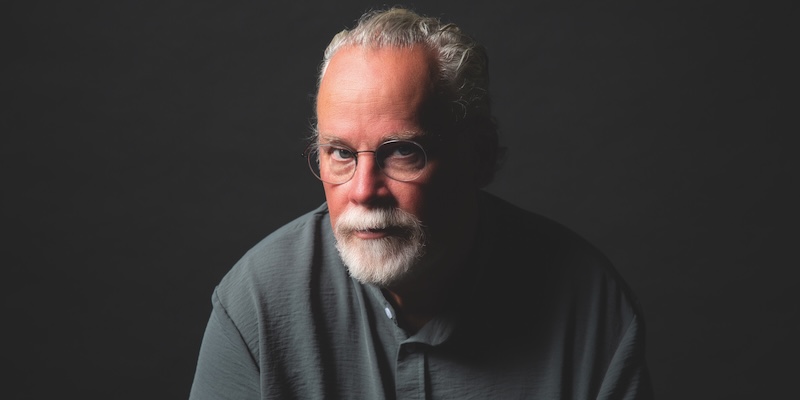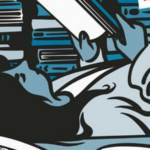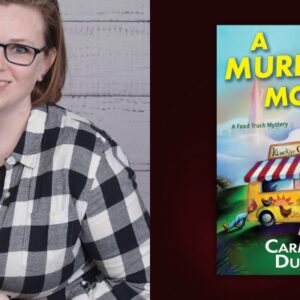A chance encounter at a Los Angeles Dodgers game got Michael Connelly thinking. Already a successful novelist with a series of books about LAPD detective Harry Bosch, the author had been considering writing about the courts but lacked a way to present those stories.
Then he met David Ogden, who gave him an entry point. An attorney, Ogden navigated his way to nearly forty courthouses in Los Angeles County, working in the back of his car as a client drove him around.
“I was hesitant because I’m not a lawyer, and the big practitioners of the legal thriller have usually been in courtrooms and done the work,” Connelly said during a telephone interview from his Florida home. “That probably made me hesitate for more years than I should have. But once I met this guy, I kind of felt like—I don’t know what you want to call it—a gimmick, a style that I thought was somewhat unique, and it got me excited and so that’s why I did it.”
Connelly might have shrugged off the idea of a lawyer working out of his car, but Ogden convinced him that he was successful. So successful, in fact, that he lived in Malibu and counted future Oscar winner Matthew McConaughey among his neighbors. Skip ahead about eleven years and McConaughey would bring Mickey Haller, the character Ogden inspired, to life in the 2011 film The Lincoln Lawyer.
The newly published The Proving Ground marks the eighth Mickey Haller novel and comes twenty years after the character made his first appearance. Connelly, who has made Haller a semi-recurring character in the Bosch books (and vice versa) serves as executive producer for several television series based on his books including The Lincoln Lawyer (preparing for its fourth season on Netflix), Bosch (which ran for seven seasons on Amazon Prime), and Ballard (another Amazon series, this one about an LAPD detective named Renée Ballard with a six-book series to date and a second season in the works).
The Proving Ground marks a departure for Connelly’s character, who until now has focused on criminal defense work. The novel puts Haller in the middle of a lawsuit against a tech company. He represents the family of a girl killed by a boy under the sway of an AI chatbot.
In the following Q&A, Connelly talks about the attorneys who influenced the creation of Haller, his role in the various television series based on his books, and which character is hardest to write.
*
L. Wayne Hicks: With The Proving Ground I feel like I missed something. I don’t want to talk about spoilers, but he’s not doing criminal defense work, and he’s driving a Chevy Bolt. Why this dramatic shift?
Michael Connelly: Two reasons. The last Lincoln Lawyer book was called Resurrection Walk. In the ending, he had some disillusionment, and it kind of ends with him saying, “I have to change my life. I have to go in a new direction,” and so that’s what he’s doing in this book.
But also outside of the book, I just think, if you’re going to sustain this series, you need some pretty significant pivots every now and then. Doesn’t have to be every book. But I just felt like I basically had written seven Lincoln Lawyer books where he was defending someone accused of a crime, and it was going to get old for me, so I had him move into civil court and try to become what they call a public interest lawyer.
LWH: Is he through with criminal defense, or is the door not quite closed on that?
MC: He ends up, out of loyalty and guilt, he picks up one…in this book, where he let a client down. But I don’t know. I don’t plan that far ahead. I don’t even know when or what the next Lincoln Lawyer book would be, but I will probably try to figure out another civil action, something that falls under the heading of public interest lawyer. But if I can’t find it, there’s lots of criminal stories out there.
I just felt like I basically had written seven Lincoln Lawyer books where he was defending someone accused of a crime, and it was going to get old for me, so I had him move into civil court and try to become what they call a public interest lawyer.LWH: I read that you met this attorney, David Ogden, at a Dodgers game.
MC: Yeah. Opening day. I think it was opening day 2000 or 2001. He was the guy who inspired it, but I didn’t know him. He was a stranger that I met sitting next to me at a baseball game. But my first roommate out of school was a fellow journalist, and we both worked at the same newspaper in Daytona Beach.
I went on to other newspapers. He went on to law school and became a criminal defense attorney. We’d always stayed in touch. So, I went to him, I said, “I have this idea for a guy who works out of his car,” and he said, “Well, I kind of work out of my car.”
He was a federal court defense attorney and covered the Middle District of Florida, which runs from Jacksonville, slashing across the state, through Orlando, Tampa and down to Fort Myers. He was on the road all the time. He had cases in courthouses across Florida, and so he had the same vibe. Because we had been foxhole buddies in our first jobs in journalism, he let me be a fly on the wall when I could. It wasn’t a full-time thing, but that’s why from idea to execution was about five years.
LWH: As someone who was a journalist, who was used to being on tight deadlines and seeing your articles published within a day or two, was it difficult to get used to the slower pace of writing novels?
MC: No, I wouldn’t say it was difficult. It was certainly different. I mean, the biggest difficulty for me was going from a newsroom where there were several people and lots of camaraderie and pranking and all that kind of stuff and noise, to be in a room by myself.
For about two years, I kept writing in coffee shops where there’d be noise and stuff, and so it took me a while to get used to being alone while I’m writing. Deadlines in newspaper business only helped me. I really credit that for having at least one book a year for going on thirty-five years. There’s no such thing as writer’s block in a newsroom. You’ve got to do it. And that’s kind of what I bring to what I do now in fiction, even though I have one deadline a year instead of multiple deadlines a day.
LWH: You have so many characters now in so many different book series, how do you decide this is time for a Bosch or a Ballard or a Mickey Haller book?
MC: It’s just kind of instinctive. Sometimes it’s the story. Like in this book, Proving Ground, I was reading about this case in Florida involving a chatbot and a kid who committed suicide, and it was so intriguing to me. I had already gathered some string on another case that happened in England where some kid was trying to kill the queen at the urging of a chatbot. I saw this was a story that I’d like to pursue in fiction, and it just kind of immediately hit me it’d be best to put it in terms of a trial.
I kind of had the blueprint for it from this lawsuit in Florida, which I got a hold of, and the filing alone was 150 pages. There were some novel motions, legal motions, being made that I knew I could build into some degree of drama. This one was almost right away a Lincoln Lawyer book.
But I also was quite aware that usually when I write books about a new wave of technology, I do it with Jack McEvoy, the journalist I’ve been writing about over the years, and so I had to find a way to bring him into it as well. He volunteers to be on the Lincoln Lawyer’s team.
LWH: I’ve always liked that character.
MC: I do too. I mean, he’s probably the closest character I’ve ever written to me, and maybe that explains why I’ve written the least about him over the years.
LWH: Is it just hard to write about a person who’s basically yourself?
MC: It’s not hard. It’s just not that interesting. It’s not as fun. If I write about Mickey Haller or Bosch, it’s kind of like based on what I know about this character, what would he think? What would he say? What would he do? When I write about Jack McEvoy, I just write what I would say, what I would do, what I would think.
LWH: At what point did you realize Mickey Haller had an audience, that you should keep writing about the Lincoln Lawyer?
MC: Well, it was received pretty well. I’ve written a lot of books, but I know very little, I feel, about the publishing industry, and I was quite aware I was writing about a guy who as the guy who inspired it said, defends the damned. On page one of a Harry Bosch novel, you have the reader wanting him to succeed because he’s trying to find a murderer. On page one of every Lincoln Lawyer book, except for this latest one probably, he’s defending someone that may be guilty, or is guilty of at least something.
So there was a concern at the beginning, and it was shared by my publisher, how your audience that you’ve built for almost fifteen years with Harry Bosch novels, how are they going to react to this? I also do pretty well in other countries that have different justice systems, court systems, and there is also that flag raised that these might not go over that well in other countries because it’s going to be confusing to them, because our system is different from theirs.
“Yeah, I know I get all that, and I’m willing to take that risk, but I want to write about this character because I just think it’s going to work, so we’ll see.” As a hedge, I said, “I have a Bosch book almost done, and you’ll be able to bring that out, if this one tanks, bring this one out in four or five months.” So, it worked out.
LWH: Did you think with The Lincoln Lawyer movie that this was going to be one and done, and Hollywood would leave you alone? Or did you hope something would happen, like a long-term situation with the character?
MC: You can hope for stuff. That’s for sure. Who knows anything about Hollywood? I mean, I sure don’t. I had nothing to do with the movie, but they invited me to set. Actually, McConaughey did.
The one contribution I made to the that movie was McConaughey called me up and goes, “I know you’re not a lawyer, but you must have had a lawyer working with you on this or consulting with you.” And I said, yeah, yeah, a guy I knew since college. And he goes, “Okay, I need to meet him.”
I brought McConaughey and the real Lincoln Lawyer together, and they spent time, and kind of went from there. But because of that, I got invited to the set. And he kept talking while he was making the movie about how much he liked the character. He was the one who said, “I could see this as a series.”
But then the movie ended up being one step on his what they call “McConaissance,” where he left romantic comedies behind and became a serious actor and so he never circled back to this character. Not that I blame him. He won the Oscar, and he was getting all these choice roles, so why go back and play the same thing again?
That’s why we moved on to TV. I told him that right at the end there, we’re making a TV show unless you tell me you want to make a movie. And he said, “go with God.” So that’s what we did.
LWH: You’re executive producer of Bosch, The Lincoln Lawyer, Bosch: Legacy, Ballard, and the upcoming Bosch: Start of Watch. What responsibilities do you have in that role?
MC: I’m the one who wrote the character, so I’m along for the ride. I get that kind of credit. It’s mostly a vanity credit, although I pitch in when asked, I’ve written scripts. I’ve rewritten scripts. I’ve written scenes. The thing where I want to be involved in the most is casting of the lead character, and I don’t have any kind of contractual approval or anything like that, but I want to be in the room when they make that decision.
So far, I have been, and that’s what’s important to me, because I know they’re going to change the stuff when they adapt it. They just have to as they move from a printed to a visual medium, but I want to be there to kind of make sure whoever is taking on the role of my main characters knows what was expected, knows the value of those characters and wants to be true to those characters, and you get a sense of that in the casting process,
LWH: They’re not required to listen to you, but they do probably value your input?
MC: I think so. I mean the first part, definitely. They’re not required to listen to me, but I think so. And also there’s a unspoken threat. I have a public. I have social media. I have all these things and every time one of these shows comes out, I get lots of media requests. That could be a danger. They wouldn’t want me going out there and saying they cast the wrong guy, that kind of thing. So, they’re very inclusive in the process.
LWH: Is it a fair question to ask which actor you preferred or liked best, as the Lincoln Lawyer, whether it was Matthew McConaughey or Manuel Garcia-Rulfo?
MC: You can ask that question. I’ll probably give a political answer. They’re both very good, but Manuel is closer to the guy in the book. The guy in the book is Mexican-American. They sacrificed that because they had a major movie star say, “I want to do this.” I don’t regret that. He was fabulous.
I asked him, “Why are you doing this and this role in particular?” And he said, “Because Mickey Haller is a guy who can dance in the rain without getting wet.” I just thought that’s a one-sentence description of the guy that is so accurate, and that’s what he brought to it. He’s always observing, his eyes always moving, and kind of whip smart in the courtroom. I think that’s where Matthew excelled in the role. And Manuel is the same way.
But it’s kind of a loaded question, because right now we have forty episodes of Manuel, so he’s gotten deep into that character. Of course, I’m going to gravitate towards a deeper character story. Matthew had basically a hundred and ten minutes to project Mickey Haller to viewers, so it’s kind of an imbalance there that obviously tips the scale towards Manuel.
LWH: The two series you’ve got with Bosch and The Lincoln Lawyer are on two different streaming platforms. So even though these guys are half-brothers in your novels, they don’t wind up together on television. Is that going to be the case as long as they’re on two different streaming platforms?
MC: Yeah. It’s like you have to solve world peace before you can try to get Amazon and Netflix to work together on a TV show, so I just don’t think it will ever happen, I thought Lincoln Lawyer could be a good TV show, and I took it to Amazon first, and I said, “Hey, it’s connected to Bosch” and people that were running Amazon didn’t see the value in having two Connelly shows, because they felt they already had my audience….
They passed on it. Netflix took it, and now never will the twain meet.
LWH: That’s too bad. Now, with the upcoming Bosch: Start of Watch series, are you going to be going back and writing some sort of prequel novels? Or is the TV series going to stand alone?
MC: It’s going to stand alone because the TV is different from the books. The TV revolves around Titus Welliver as Harry Bosch. If you go back to when that character was a rookie, you’re talking about the ‘90s. And in my books, Bosch was a rookie in the ‘70s. I don’t want to write a prequel that conflicts with all the Bosch books. Any writing I do will actually be on the show.
I think I will probably end up writing a script just because it’s very exciting to me, because it’s not, as you obviously have recognized, it’s not based on the books. It’s really more of a creative process than adapting a book, which excites me. You know, it’s like uncharted territory, and so I’ve been going to the writing room. The first week, I was there three times, which is a lot for me to spend in a writing room.
LWH: How protective are you of Mickey Haller? If someone were to work on the TV series and have him saying things you don’t agree with, or doing something you don’t agree with, can you step in?
MC: Yeah, I can. I have never done that with Mickey Haller in particular. I’ve done it a couple times with Bosch and Ballard. But yeah, I get the scripts. I’m not in the room all the time. I just kind of make perfunctory visits….There’s been a hundred and forty-eight episodes of television made on my books across all the shows and probably I said, “Harry wouldn’t say that,” or “my character wouldn’t do that” less than ten times.
It’s reflecting the hiring process of who you get. The two most important things are who’s the lead actor and who is the show runner. I’m very involved in picking the show runners, and I want to make sure there’s someone who likes what they see in the book and wants to endeavor to capture what’s in the book, not endeavor to say, “Hey, I can do this better. Let’s go in this direction.”
There are those people out there, and they shouldn’t be adapting work. They should just be creating their own. So my philosophy is, if you’re going to work on a show that’s coming from books, then make the show come from the books.
LWH: The people who inspired you for the Lincoln Lawyer, the guy from the Dodgers game and then your old reporting buddy turned lawyer. How did they react to the character in the books?
MC: My buddy from my newspaper days, he’s retired now, but he had a partner in a firm. It was two lawyers, and so I kind of hung around both of them at different times. This book The Proving Ground is dedicated to them, and it says thanks for answering all the questions for twenty years. And that was a mistake, actually, because they’ve been answering for twenty-five. The series is twenty years old, and I’ve been going to that well of their experiences for twenty-five.
So my philosophy is, if you’re going to work on a show that’s coming from books, then make the show come from the books.They’ve gotten some notoriety. There’s been stories written about them as being the original Lincoln Lawyers. On the wall in my office, I have a picture of them with Matthew McConaughey on the set of the movie. They’ve come out to watch Manuel do it. So they’ve had a good time. They’re lawyers. I compensate them for their time with me, and they’re happy.
David Ogden, I always stayed in touch with him, but he retired pretty soon after I met him and moved to Montana, and so he was never involved in the writing of the stories, but we stayed in touch.
Here’s an anecdote for you. At the baseball game when he told me he worked out of his car. I must have made some kind of reaction that made him think [that I thought], “Oh, you’re a bad lawyer.” And he goes, “No, no, no. I’m not a bad lawyer. I’m a very successful lawyer. But in LA County, there’s forty courthouses and four hundred miles of freeway, and I can take a case anywhere and I do. In fact, I am pretty successful. I live in Malibu, and my neighbor is Matthew McConaughey.”
So about eleven years after that conversation, Matthew McConaughey was playing him, or playing the character he inspired, I should say, and it’s funny in LA, people don’t really know their neighbors that well, so he didn’t meet McConaughey until the premiere. I invited him, made him arrive in a Lincoln.
Photo by Katherine K. Westerman.
***


















